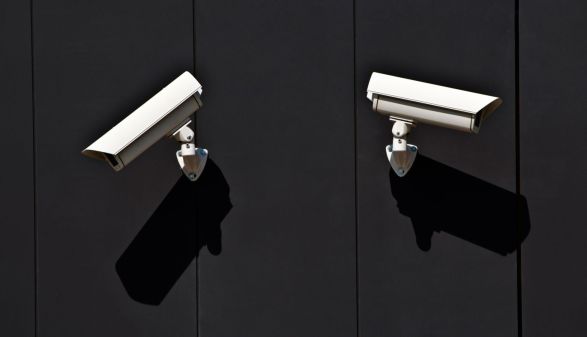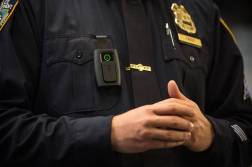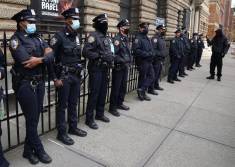‘Contagious accountability:’ report shows police body cams decimate officer complaints

Amid national tension between law enforcement and the citizenry, a study conducted by Cambridge University shows police body cameras may radically reduce the number of conflicts between officers and citizens.
The research, published in the journal Criminal Justice and Behavior and performed between 2014 and 2015, follows analysis of complaint statistics for more than 1,800 officers in seven U.S. and U.K. police departments. Key statistics of the study, based on randomly selected officers wearing body cameras, showed that complaints in departments dropped from 1,539 to 113 one year after policy instatement, with results annualized for departments that participated less than 12 months.
Researchers also found that officers didn’t always need to wear the body cameras to benefit from them. Data showed that police who wore the devices had about the same amount of complaints on duty as those who didn’t. The study concluded that this was likely due to the fact that all officers in the departments had, during the study period, been exposed to the body cameras and adjusted their behaviors in turn. It’s a phenomenon the Cambridge team dubbed “contagious accountability.”
“It may be that by repeated exposure to the surveillance of the cameras, officers changed their reactive behavior on the streets, changes that proved more effective and so stuck,” said Alex Sutherland in a release, the study’s co-author, and part of the research group RAND Europe. “With a complaints reduction of nearly 100 percent across the board, we find it difficult to consider alternatives, to be honest.”
Despite such impressive results, researchers noted that the effectiveness of cameras is highly contingent upon how and when they are used. For example, if cameras are introduced during the middle of a conflict they can escalate aggressiveness. This experiment required officers to wear the devices throughout each encounter and inform citizens they were being recorded.
“The jolt of issuing a verbal reminder of filming at the start of an encounter nudges everyone to think about their actions more consciously,” said Cambridge criminologist and the study’s lead author Barak Ariel. “This might mean that officers begin encounters with more awareness of rules of conduct, and members of the public are less inclined to respond aggressively.”
Ariel and his fellow co-authors said the experiment is a milestone for body cam supporters because it validates a smaller study performed in Rialto, Calif.. That research concluded that officers who did not wear body cameras were twice as likely to use force during confrontations, and those that did wear cameras reduced their complaint rate 10-fold. But critics complained the sample size used was too small. The recent study remedies this with its seven department sites that serve roughly 2 million residents in two countries.
“There can be no doubt that body-worn cameras increase the transparency of frontline policing,” Ariel said. “Anything that has been recorded can be subsequently reviewed, scrutinized and submitted as evidence.”






